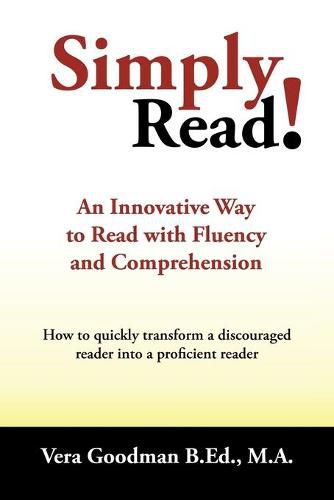Readings Newsletter
Become a Readings Member to make your shopping experience even easier.
Sign in or sign up for free!
You’re not far away from qualifying for FREE standard shipping within Australia
You’ve qualified for FREE standard shipping within Australia
The cart is loading…






This title is printed to order. This book may have been self-published. If so, we cannot guarantee the quality of the content. In the main most books will have gone through the editing process however some may not. We therefore suggest that you be aware of this before ordering this book. If in doubt check either the author or publisher’s details as we are unable to accept any returns unless they are faulty. Please contact us if you have any questions.
Reading skills are acquired as we read books, share experiences and engage in talk with children. Feelings, attitudes, beliefs and the climate within the family are all important. Children will pick up the view of reading presented by their first teachers, the family. Family members who know a child and the experiences which have been part of the child’s life are equipped to provide the support their young reader needs. Although it is possible for children to learn to read by reading only at school, most require extra practice. Reading is learned through apprenticeship. Just as you cannot learn to drive a car by reading a book on how to drive a car, you cannot learn to read by reading a book on how to read. The art of reading is gained through guided practice. How do humans learn? The most obvious ways that come to mind are memorizing, experiencing, practicing and listening. In our society, we often think of learning as being the result of formal education. However, much of what we learn happens without conscious awareness and many more subtle factors are involved. The brain builds a pool of knowledge based on experiences encountered from moment to moment. We cannot stop ourselves from learning. However, what is learned may not be what we want to learn or what is being taught. For instance, it is possible that efforts to teach reading might result in some children learning to dislike reading.
$9.00 standard shipping within Australia
FREE standard shipping within Australia for orders over $100.00
Express & International shipping calculated at checkout
This title is printed to order. This book may have been self-published. If so, we cannot guarantee the quality of the content. In the main most books will have gone through the editing process however some may not. We therefore suggest that you be aware of this before ordering this book. If in doubt check either the author or publisher’s details as we are unable to accept any returns unless they are faulty. Please contact us if you have any questions.
Reading skills are acquired as we read books, share experiences and engage in talk with children. Feelings, attitudes, beliefs and the climate within the family are all important. Children will pick up the view of reading presented by their first teachers, the family. Family members who know a child and the experiences which have been part of the child’s life are equipped to provide the support their young reader needs. Although it is possible for children to learn to read by reading only at school, most require extra practice. Reading is learned through apprenticeship. Just as you cannot learn to drive a car by reading a book on how to drive a car, you cannot learn to read by reading a book on how to read. The art of reading is gained through guided practice. How do humans learn? The most obvious ways that come to mind are memorizing, experiencing, practicing and listening. In our society, we often think of learning as being the result of formal education. However, much of what we learn happens without conscious awareness and many more subtle factors are involved. The brain builds a pool of knowledge based on experiences encountered from moment to moment. We cannot stop ourselves from learning. However, what is learned may not be what we want to learn or what is being taught. For instance, it is possible that efforts to teach reading might result in some children learning to dislike reading.